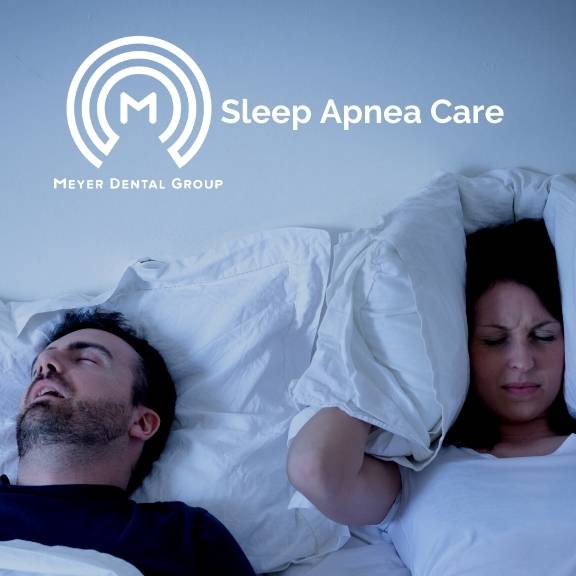APPOINTMENTS & EMERGENCIES 847 827 6290


Obstructive Sleep Apnea (OSA) is a sleep breathing disorder caused by airway obstruction, when a person stops breathing while they sleep. The tissues in the throat collapse, narrowing the airway, despite one's efforts to breathe. Apnea is defined as "a cessation of airflow for 10 seconds or more." This can occur multiple times per hour, and up to hundreds of times an hour.
Commonly, a person with sleep apnea snores laboriously, and stops breathing while still sleeping. A sleeping partner would find that the person is straining to breathe but there is no snoring sound. These periods of interrupted and restricted breathing are followed by a gasping or choking. The person with sleep apnea will partially awaken in order to breathe, leading to fragmented, unrefreshed sleep which can be the cause of excessive daytime sleepiness.
The greater concern is that when the airway collapses and oxygen is suspended, the body goes into a fight-or-flight response, putting immense strain on the heart and increasing blood pressure. Over time, this can wear out the heart and lungs, and can lead to heart disease, diabetes, stroke, obesity, and several other co-morbidities.
Obstructive sleep apnea is destroying the health of millions of Americans, and the problem has only gotten worse over the past two decades
American Academy of Sleep Medicine President Dr. Timothy Morgenthaler
Findings from new studies emphasize the negative effects of sleep apnea on the brain and heart health: however, these health risks can be reduced through the effective treatment of sleep apnea. (AASM News Archive).
A person afflicted with untreated obstructive sleep apnea is up to 4 times more likely to have a stroke, as well as 3 times more likely to have heart disease.
Approximately 50% of all patients who have hypertension, or high blood pressure, are also afflicted with obstructive sleep apnea.
People suffering from OSA are as much as 6 times more likely to be involved in a car crash than those without sleep disorders. This is due to the fact that they are drowsy from lack of sleep.
When you experience Sleep Apnea, I am aware it is debilitating and can affect your entire life. I have treated hundreds of patients who have suffered from OSA and I understand how draining it is for you. Everything in your daily life can be severely impacted by this agony...whether it be your work, relationships or overall health and you need relief now.
Dr. Tom Meyer, Meyer Dental Group
Ending the struggle of what is causing your restless sleeping pattern is key to making a plan to get rid of it. There is a lot of information out there on the internet about Sleep Apnea, however we know that it is not as clear as it needs to be, in order to give you the relief you need and deserve. A proper OSA diagnosis is a personal one, as there are multiple factors involved such as causes, symptoms, and overall health history. The complexity of OSA makes it difficult to pin point what exactly is going on, where it comes from, and most importantly: "What to do about it!" and that's why at Meyer Dental Group, we are here to help.

Often the person with sleep apnea is totally unaware of the problem and will often deny the fact that he / she snores, but the bed partner will observe:
To find solutions, it might take making some lifestyle changes. Determining if you have a sleep breathing disorder, or just snoring is as easy as consulting a health care provider who is trained in sleep disorders. Normally, the evaluation will begin with a screening questionnaire and from there an assessment will be made to conclude if a sleep study is necessary to determine what type of sleep disorder a person might be suffering from.
What is the 'link' between your teeth and sleep apnea? The three most common sleep breathing disorders are:
1
Make an
appointment
2
Discover
healthy dentistry
3
Look, feel,
and live better


